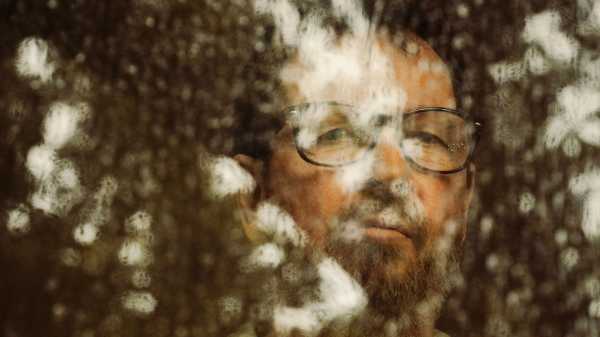
Lars von Trier’s supernatural soap opera “The Kingdom,” which ran on Danish public television in 1994, is set in a Copenhagen medical facility overrun in equal capacity by vengeful ghouls and pale Scandinavian bureaucrats. A typical episode might find a doctor grafting a cancerous liver onto his body as a trophy or staff members engaging in a game of blackmail over a severed head. In the most notorious sequence, a pregnant woman gives birth to a blood-soaked, full-grown man with the face of the creepy German character actor Udo Kier. The series was part “The Shining” and part “E.R.,” with an atmosphere of absurdist clock-punching dread that weirdly anticipated “The Office.” The voluble neurosurgeon Dr. Stig Helmer (Ernst-Hugo Järegård), newly imported from Sweden and lording over his “Danish scum” colleagues, was the Ricky Gervais figure, a world’s-worst-boss type raging impotently against his own obsolescence.
“The Kingdom” ran for two raucous seasons and von Trier had hoped to make a third, but Järegård died in 1998, and von Trier eventually moved on. A remake developed by Stephen King, in 2004, retained little of the original’s genre-bending alchemy. So it came as a welcome surprise when von Trier announced, in December of 2020, that he would be reviving the series for a final installment titled “The Kingdom Exodus.” This time, the hapless antagonist is the late Dr. Helmer’s officious son (Mikael Persbrandt), who is belittled among staffers as “Halfmer” and abandoned to assemble his own faulty IKEA office furniture alone. The series, which is streaming on MUBI, balances demonic intrigue and slapstick medical gags with wry in-jokes, callbacks, and cameos aimed at diehard fans.
By unfortunate coincidence, the project arrived in conjunction with medical news of von Trier’s own. In August, von Trier’s production company, Zentropa, announced that he’d been diagnosed with Parkinson’s disease. Von Trier told me recently, over Zoom, that his symptoms made directing the series a struggle. “The actors in ‘Kingdom Exodus’ are doing a good job,” he said. “But I felt terrible, because I had this disease, and I didn’t know that I had it at the time.” He eventually received a diagnosis, and with a characteristic mix of narcissism and self-abasement opted to make oblique reference to his condition onscreen. In the original “Kingdom,” von Trier appeared in formal wear at the end of every episode to recap the ludicrous plotlines and bask in his God-like creative control. In “Exodus,” his role is the same, but the exegesis is delivered from behind a curtain for reasons that he refers to, in voice-over, as “vanity.” All that’s visible are his shoes, peeking out from beneath the fabric—a poignant symbol for a filmmaker who once gleefully compared his cinema to a pebble lodged in a shoe.
Von Trier has always been a divisive filmmaker, both decorated and disparaged in art-house circles, but he has spent the last decade of his career under the pall of his clumsy offscreen provocateurism. In 2011, at the Cannes press conference for “Melancholia,” his film about a woman whose colossal unhappiness seems to bring about the literal end of the world, a journalist asked von Trier a question about his German roots. He responded with a rambling, kamikaze monologue in which he declared that he “sympathized” with Hitler and added, “How can I get out of this sentence? . . . O.K., I’m a Nazi.” As a close follower of von Trier’s gonzo career (not to mention as a Jew), I found the comment glib and distasteful, but not especially meaningful. Von Trier, a critic of far-right ideologies at home and abroad, has always had a devout sense of political incorrectness, and he has never been one to walk back an outrageous claim. When an uproar ensued, and Cannes declared von Trier “persona non grata,” he publicly declared remorse, then proceeded to have the phrase printed on a T-shirt and wore it to his next première, where it complemented the four-letter word newly tattooed on his knuckles.
During our conversation, von Trier spoke slowly and deliberately, with a certain self-consciousness about his frail condition. But he brought up Hitler unprompted, looking amused to be suddenly back on treacherous ground. He was in his home in Lyngby, just north of Copenhagen, sitting in front of a framed painting bearing a striking, enigmatic resemblance to Peter Paul Rubens’s “The Massacre of the Innocents,” depicting the slaughter of infant children in Bethlehem. When I asked him about his impulse to pick at the scabs of controversy, he said, “Are you asking if I’m a Nazi?” and added, “I should have put on my uniform.” He admitted that, upon reflection, l’affaire “Melancholia” may have been subconsciously premeditated. The day before the press conference, he’d gone to see his friend and mentor Gilles Jacob, the former Cannes president and power broker. “He gave me a book about Cannes, and there were two pictures of me in it: one where I was in a leather jacket with a bald head, and one with me in a tuxedo. And then underneath it says, ‘That’s how it always goes with rebels. They start off one way, and then they conform.’ I said to him, ‘I don’t think this is a nice thing to write. It doesn’t please me, anyway. So I have to find something very provocative to say at the press conference tomorrow.’ He said, ‘Yes, you do.’ ”
Such trollish tendencies have helped fuel misconceptions of von Trier as a gifted but immature delinquent. He has referred to himself as “a simple masturbator of the silver screen,” but a more accurate diagnosis might be that he is a cinematic prankster who believes, fervently and somewhat paradoxically, in innocence as a virtue. Films like “Breaking the Waves” (1996), starring Emily Watson, and “Dancer in the Dark” (2000), starring Björk, are hymns to martyrdom that pits holy fools against the emissaries of a cold and cruel world. Part of von Trier’s polarizing trilogy about physically and psychically brutalized female innocents, along with the Nicole Kidman-starring “Dogville” (2003), those films earned von Trier accusations of misogyny and masochism. But he rendered the protagonists’ Pyrrhic victories so ecstatically that any claims of bad faith seemed moot. Von Trier’s films have always been perched on a high wire between blunt-force shock tactics and bone-dry satire. To borrow the trilogy’s title, they also wear their “golden hearts” on their sleeves.
Von Trier has always been clear that he views filmmaking as a way of revealing himself. He grew up, in Copenhagen, in a radical Communist household where, as he once put it, everything was allowed except for “feelings, religion, and enjoyment.” This upbringing left him with a host of debilitating hangups and a complicated relationship to authority. His most widely circulated quote that’s not about Nazis is “I’m afraid of everything in life except filmmaking.” After trying and failing to win entrance to Denmark’s national film academy, he was finally admitted on his third attempt, in 1979, and found a suitably obnoxious way to mark the occasion. He told me, “The first thing I did was get a spray can and then, on the wall, just opposite the headmaster’s window, I wrote ‘film school is dead.’ ” Von Trier’s willingness to play the enfant terrible was a big part of his early legend, but so was his almost preternatural assurance with a camera. In 1984, at the age of twenty-eight, he won a technical prize at Cannes for his first feature, “The Element of Crime,” an expressionistic police procedural with a hypnotically immersive effect. He had taught himself filmmaking on his mother’s 8-mm. camera with the help of a how-to manual. “I still have it,” he said, of the book. “And it’s so worn out because I read it so many times.” He added, “I will say that I learned ten times more from that book than I learned from film school.”
Von Trier’s movies are filled with allusions to his favorite directors, but he speaks of his filmmaking as the work of a lonely explorer. “I wanted to see myself as a scientist who was put on a deserted island and asked to go west,” he said. “That meant that I should only go with my own compass and then go the route I was shown, because otherwise it would have no significance.” His pilgrim’s progress has been defined in part by fruitful detours, such as his co-founding, in the nineties, of the filmmaking collective Dogme 95, which was both a bold experiment and a publicity stunt. Its members took a semi-facetious “vow of chastity,” embracing an ascetic filmmaking process—shooting on location, using only handheld cameras; eschewing period pieces or genre tropes—in order to rescue cinema from manipulative visual beauty. (“I like rules and borders,” von Trier told me. “I also like when I have my back to a wall. I have to find something completely new to say.”) Dogme 95’s notoriety made von Trier’s cinema briefly synonymous with a kind of grubby, low-resolution ugliness, and his two most famous features—“Dancer in the Dark,” which won the 2000 Palme d’Or, and the epic Thornton Wilder pastiche “Dogville”—are united in part by their status as eyesores. But “Dogville,” which was shot on a bare soundstage meant to represent a Depression-era mountain town, exemplified von Trier’s powers of suggestion. With a devilish grin, he told me that he wrote the script, a fusillade of dialogue linked together by a magisterial voice-over, on a ten-day cocaine bender. “Normally, when you write, you stop and don’t know if you should go right or left. With coke, you just go right. You decide straight away.”
Von Trier has been up front over the years about his various addictions and anxieties. “As a private person, I love medicine,” he told me. “I take so many pills because I have so many things now that have to be cured.” “Melancholia,” along with the bleak, annihilating sex-horror movie “Antichrist” (2009) and the two-part sex-addiction saga “Nymphomaniac” (2014) were billed as part of his Depression Trilogy, and he told me that the decision to return to the world of “The Kingdom” was partially an attempt to manage his mental health. “I was having—believe it or not!—depression,” he told me. “I had to start working because that was the only thing that really worked. ” If the arrogant, alcoholic Dr. Halfmer is the butt of the show’s jokes—and an avatar of its gently contemptuous Swedish-Danish rivalry—the elderly female patient Karen (Bodil Jørgensen), who gets admitted to the hospital in the first episode, is something like its soul. She is suffering from a unique case of “nyctophobia”—an extreme fear of the dark—which seems to put her in communication with a spirit realm. Like most of the unusual maladies depicted in “The Kingdom,” Karen’s condition is played simultaneously for laughs and for a kind of implicit empathy. As black as the show’s hell-is-other-people humor can be, it’s rooted in a tender sense of human frailty. It is not particularly scary in a horror-movie sense, instead accessing a more ephemeral, existential sort of terror that, in von Trier’s hands, is indivisible from comedy.
Von Trier told me that his health struggles affected the show’s tone. “I think I underestimated what horror really needs, which is time,” he said.“The reason there are so many jokes is because I could only work for about an hour and a half each day while I was writing. Everything became compressed.” I asked von Trier whether he viewed himself as an essentially comedic filmmaker. “I believe that humor and, let’s say, fascination, or fear, come from the same source,” he said. “I’m terrified of getting on a plane, but I have been a few times, and it’s fantastic to fly, when it goes through the clouds, all of that. The fear comes from the fascination of the thing.”
“Exodus” is von Trier’s first project since his infamous serial-killer movie “The House That Jack Built,” from 2018, whose title refers to the towering flesh-and-blood structure that the protagonist (played by Matt Dillon) erects out of the bodies of his victims. (When I asked von Trier if the focus on a male antihero represented a conscientious departure, he said mordantly, “I thought it would be nice to try to do something where there are no suffering women. There were a lot of women in it, but they died, they didn’t go on suffering.”) At once confrontationally repulsive and mesmerizingly abstract, the film was easy to interpret as a self-portrait of sorts, the story of a loner trying to reconcile his aesthetic impulses with his depressive misanthropy. It featured clips from von Trier’s own filmography, giving the proceedings a valedictory air. The same could be said for “The Kingdom Exodus,” with its endearing, old-school echoes of its predecessor. But, like “The House That Jack Built,” the series is ultimately too thorny to function as a victory lap. In 2017, Björk accused von Trier of sexual harrassment on the set of “Dancer in the Dark”; he claimed that he’d only hugged her. In the new series, he coyly includes a running subplot about Halfmer’s alleged (and utterly hapless) impropriety toward a female colleague—a spoof of P.C. culture from the experienced but untrustworthy vantage of somebody who’s spent decades working and living on the edge of cancellation.
Whatever von Trier’s desire for attention, the need to be liked (or forgiven) is simply not part of his artistic constitution. “I’m very aware of the risk of doing what I call old-man films,” he told me. “These are the films that happen because you have a house that is too big, and you’re striving to repeat your success.” He continued, “I don’t have this idea that there’s a film I haven’t made yet that has to be made, right now. Also, because of this Parkinson’s I’ve picked up, I could live with not doing more films.” He sounded less resigned about his status as a troublemaker. “Persona non grata? I like that very much,” he said, laughing. “I’m the only persona non grata that I know.” ♦
Sourse: newyorker.com






